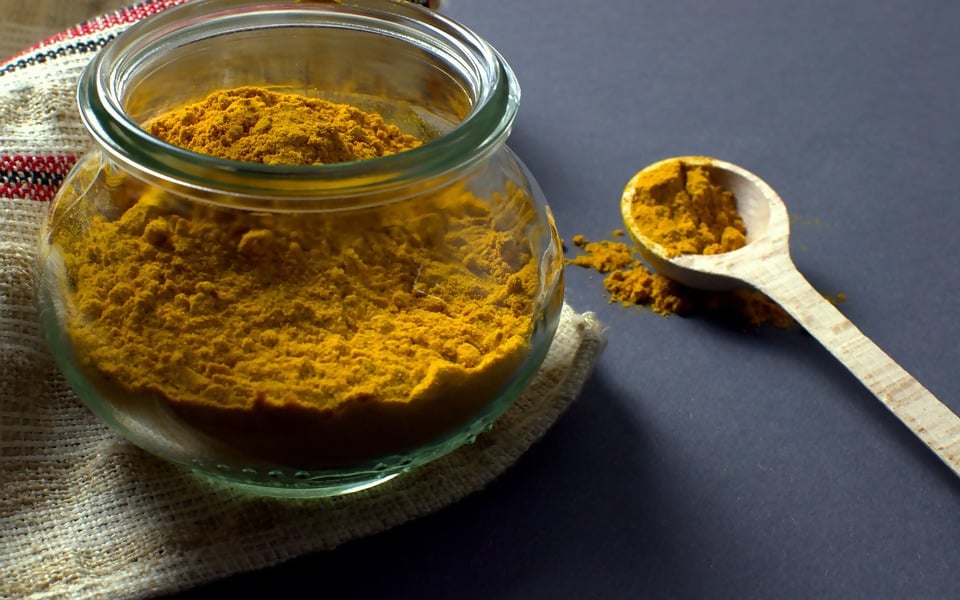Turmeric for Psoriasis – An Effective Treatment to Alleviate Symptoms
Psoriasis, an auto-immune skin condition, affects over 125 million people worldwide in its different forms. There are several types of psoriasis, all linked to one common issue – an underlying problem in your immune system that, when triggered by a mistaken response to otherwise harmless molecules and nutrients, causes a protective response where cells to grow too rapidly on the skin’s surface, causing a painful, dense layer.

Types of Psoriasis
There are several types of psoriasis:
-
Plaque psoriasis – This is the most common type, where flare-ups cause silvery scale-covered lesions anywhere on the body, including inside the mouth.
-
Nail psoriasis – This type affects fingernails and toenails, causing abnormal growth, loss of nails and crumbling nails.
-
Guttate psoriasis – This is generally found in young adults and children and can be triggered by a bacterial infection, and the scaled lesions are not as severe as with other types of psoriasis.
-
Inverse psoriasis – Typically affecting areas like the groin or armpits, this type of psoriasis can be triggered by a fungal infection.
-
Erythrodermic psoriasis – This is the most uncommon form of the condition and can affect the entire body.
The symptoms of this condition can be severely painful and make most aspects of daily life a challenge. Typically, patients are put on an intensive drug regime to try manage flare-ups, but this often has limited success. Patients are regularly prescribed topical retinoids (steroid creams), calcineurin inhibitors, salicylic acid and other powerful immune-altering drugs that aren’t safe for pregnant or breastfeeding women.
Ayurveda and Turmeric – Evidence-Based Psoriasis Treatment
But we have some good news – turmeric for psoriasis has been shown to have a very powerful effect on psoriasis flare-ups. Turmeric, an aromatic spice that is a relative of the ginger plant, contains curcumin, the active ingredient with anti-inflammatory and antioxidant properties that studies have shown to provide relief from psoriasis.
While science is catching up on the benefits of turmeric, it’s been a part of healing and treatment plans for thousands of years as part of ayurvedic medicine, a type of holistic traditional healing that originates in India and focuses on whole-body healing through natural remedies, meditation, mindfulness and achieving balance.
In this practice, turmeric is often used for the treatment and prevention of serious conditions, including arthritis relief, boosting immune function, treating IBS, reducing cardiovascular complications, treating depression, and even supporting the prevention and treatment of brain conditions, including Alzheimer’s disease.
How Turmeric Can Help You
If you want to use turmeric for psoriasis, it can be taken as an oral dose (a supplement, tea or cooking ingredient) or as a topical application (gel or paste) that can be applied to areas of the skin affected by psoriasis.
As an oral supplement, this study on turmeric for psoriasis found that it was highly-effective at treating plaque psoriasis, with an 81% positive response rate in one group and a 30% response in another group, with no ill side-effects.
As a topical application of the curcumin extract found in turmeric, a study by the Iranian Journal of Pharmaceutical Research found that over a 9-week period, patients using the gel had far fewer lesions and enjoyed a far better quality of life. It not only reduced the severity and promoted the healing of lesions, it also reduced flare-ups in general. In 72% of participants, symptoms of psoriasis disappeared completely within 16 weeks of using the gel.
In another study, it was found that curcumin also acts at a molecular level to prevent the spread of psoriasis, thereby halting or reducing more severe outbreaks.
This is because of the unique characteristics of turmeric:
-
The antioxidant component that decreases the oxidative stress related to the skin lesions (this stress can lead to flare-ups).
-
The anti-inflammatory components that inhibit the production of cytokines (a particular group of proteins) that lead to the flare-ups, essentially reducing the severity of the reaction that leads to the lesions or preventing it entirely. This also relieves itchiness and pain.
-
The anti-microbial component that enhances of the skin-barrier function. People with psoriasis are more likely to contract bacterial or fungal infections through the lesions, worsening the condition. The turmeric’s natural anti-microbial, antiviral and anti-fungal components can help prevent these secondary infections. This also promotes the healthy regeneration of skin cells instead of the overdrive that results in painful lesions.
How to Make a Turmeric Paste
This is the easiest way to get the benefits of turmeric if you don’t have easy access to a gel rich in curcumin extract. You can use fresh or powdered turmeric from your local store. All you need to do is:
-
Mix one teaspoon of water with one teaspoon of ground turmeric and mix until a paste. If using fresh turmeric, clean and peel the root, then grind in a clean pestle and mortar until it’s in a paste.
-
Cover the lesion with a thin layer of the paste and cover with clean gauze. Leave for a few hours or overnight if possible.
-
Clean with warm water. It’s important to know that turmeric is a strong natural dye that will turn your skin yellow, so be careful to avoid it touching your clothes or fabric.
Combine Turmeric for Psoriasis with Our Leaky Gut Protocol to Get the Most Benefit
Leaky gut syndrome is another autoimmune condition that is often linked to psoriasis. In this condition, your intestines are unable to properly control their digestive and waste processes, as tiny particles and nutrients leak out into the body’s systems through damaged areas of the gut. The body sees these particles as a threat regardless of whether or not they are actually harmful and triggers an immune response that includes inflammation and other painful symptoms.
If you have a leaky gut, this immune response could be triggering your psoriasis flare-ups – especially if you suffer from gluten or other nutritional sensitivities. Without a healthy gut, your body feels under attack at every turn, having a severe effect on your daily life and general health. This can quickly land you in serious trouble and having to take heavy medication for the rest of your life that may not offer the relief you need.
This is what happened to Niraj, who found himself housebound for 10 months, losing a severe amount of weight and facing the options of surgery or trialling a new pharmaceutical drug. As a pharmacist, he decided that bags full of medication were not the answer, so he developed the Leaky Gut Protocol.
How Did Niraj Do It?
Using the principles of ayurvedic medicine, his knowledge as a pharmacist and his passion for finding answers, he developed a program of natural, holistic treatment that not only to reduce his symptoms and their severity, but to eliminate them completely and restore his health.
This was achieved using a combination of colostrum (a superfood used in ayurvedic medicine) to promote healing, high-intensity probiotics to restore healthy gut bacteria (that are critical to combatting disease and supporting general health), a temporary diet free of trigger foods, and a regime of healthy sleep, mindfulness and stress management. No prescription drugs, no surgery and, most importantly, no life-altering surgery.
Instead of endlessly treating symptoms with drugs for the rest of your life, you can focus on fixing the cause of cause of your psoriasis, take charge of your wellness and implement a temporary, holistic and natural process to restore the health of your body as a whole.
To find out more about turmeric for psoriasis and how effective it is when combined with our natural, results-driven leaky gut protocol, contact us today.



Leave A Comment